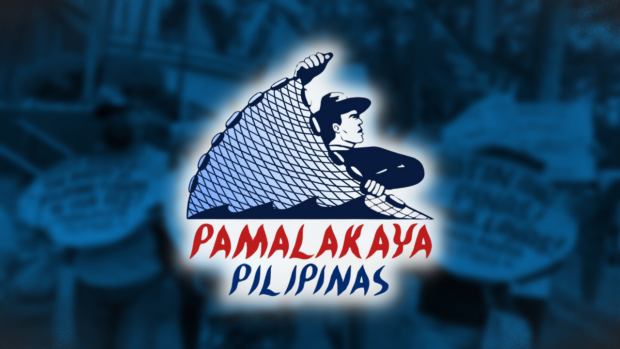
(Photo from Pamalakaya-Pilipinas/FACEBOOK)
MANILA, Philippines — A fishermen’s group voiced concerns over the possible resumption of two reclamation projects in Manila Bay.
In a statement on Sunday, the progressive fisherfolk group Pamalakaya argued that the reclamation projects actually counter production growth, saying that data indicates low fish species supply in areas where reclamation and dredging projects take place.
Citing the Fisheries Situation Report of the Philippine Statistics Authority, Pamalakaya said that there have been a decline in the following fish species along the areas where reclamation projects are ongoing in Cavite between the years 2019 and 2022:
- Alimasag (Blue crab) – from 282.43 metric tons (MT) in 2019 to 191.73 MT in 2021
- Alamang (Acetes) – from 91.64 MT in 2021 to 59.21 MT in 2022
- Samaral (Siganid) – from 145 MT in 2019 to 77 MT in 2022
- Sapsap (Slipmouth) – from 214 MT in 2019 to 151 MT in 2022
- Dilis (Anchovies) – from 145.87 MT in 2021 to 120.05 MT in 2022
“Whether some of the suspended reclamation projects resume or not, the Marcos Jr. administration is already accountable to the fisherfolk and the environment for not issuing a concrete order to totally stop these destructive projects in Manila Bay and across the archipelago,” the group said.
During a press briefing last week, the Philippine Reclamation Authority (PRA) announced plans to potentially proceed with two reclamation projects in Manila Bay by mid-2024 — a 90-hectare project in Bacoor, Cavite, and a 30-hectare project by the Philippine Fisheries Development Authority in Navotas.
This comes despite President Ferdinand “Bongbong” Marcos’s verbal order in August last year to halt all reclamation activities in the area.
The PRA said that these projects aim to increase marine goods output to enhance the country’s food security.
‘Sham’ cumulative assessment?
Pamalakaya also hit the Department of Environment and Natural Resources’ (DENR) ongoing cumulative assessment on the reclamation activities at Manila Bay following PRA’s announcement.
“This goes to show that the cumulative impact assessment of the DENR is a sham, and not meant to actually put reclamation projects to stop,” it added.
The DENR said in August last year that it will conduct a “thorough review” of the reclamation projects in Manila Bay to assess its environmental and social impacts.
In a separate statement, Jonila Castro of Kalikasan People’s Network for the Environment said that allowing the continuation of the reclamation activities shows the Marcos administration’s lack of sincerity in investigating the environmental impacts linked to the “pollutive” projects.
“The gradual reversal of the suspension of reclamation projects in Manila Bay will mean nothing but the continued destruction of our environment and the livelihoods of thousands of fisherfolk,” Castro stressed.
She also criticized the PRA and the DENR over their alleged lack of transparency around the decisions which eventually led to the resumption of the reclamation activities.
“Why are the country’s leaders hell bent on pushing these projects despite their disastrous impacts on our coastal communities and ecosystems? Whose pockets are being lined by the billions of pesos being earmarked for these projects?” she asked.
The two reclamation projects in Bacoor and Navotas are in addition to the similarly permitted reclamation projects in Pasay in November 2023, namely the 360-hectare SM Prime and 265-hectare Pasay Harbor City projects.
“Our network of fishing communities, environmentalists, church people, and scientists will remain vigilant against any attempt of the administration to resume suspended reclamation projects in Manila Bay,” Castro said in a separate message.